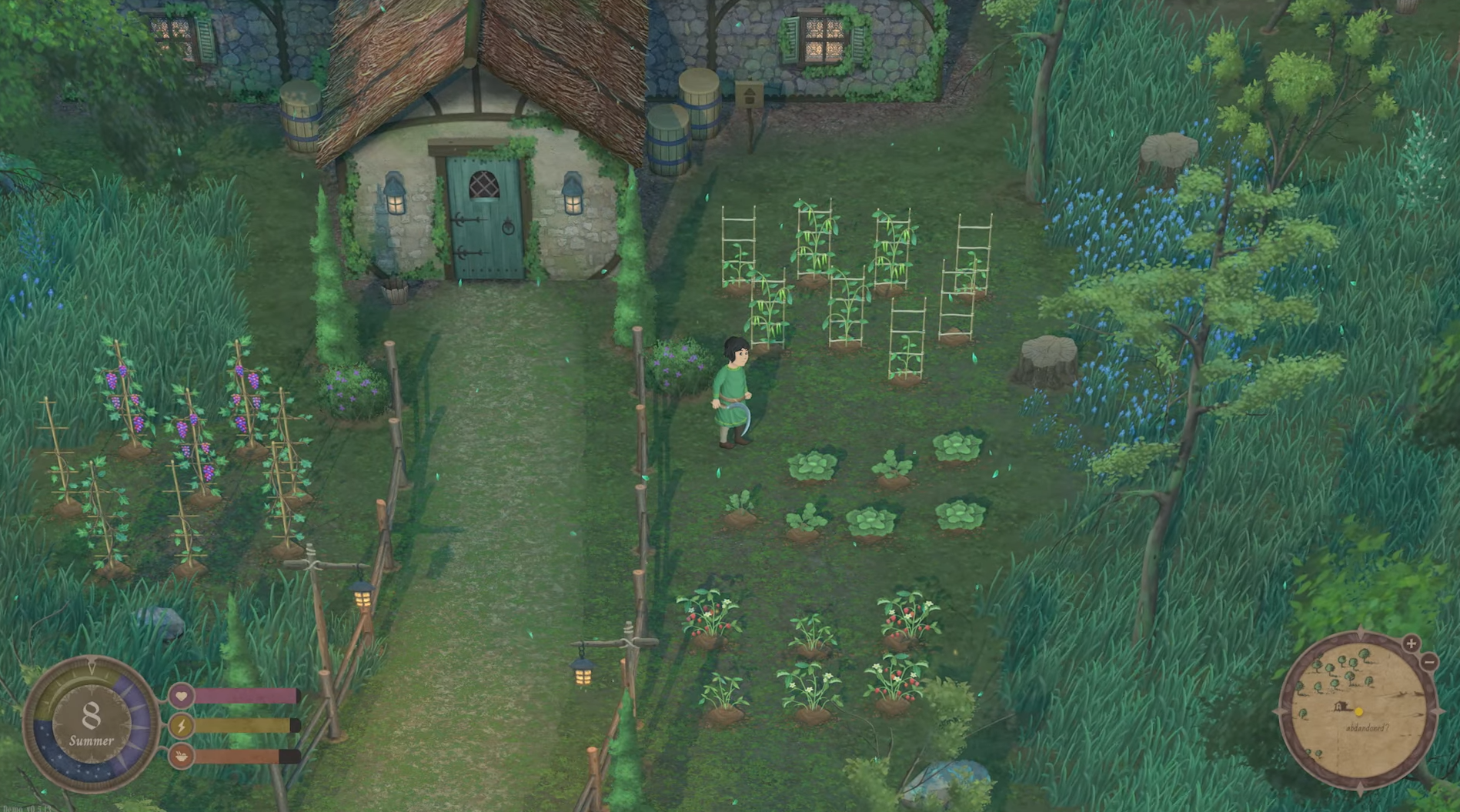Farming in Mirthwood: A Complete Beginner’s Guide
Image Credit: Bad Ridge Games, Mirthwood
Farming in Mirthwood is a great way to grow your own food, make money, and gather resources for crafting. This guide will show you how to farm, including getting started, planting and harvesting crops, and making the most of your farm.
1. Setting Up Your Farm Plot
To start farming, you’ll need a farm plot. Here’s how to set it up:
Find a Clear Area: Choose a flat, open area near your home or base.
Prepare the Soil: Use a hoe (crafted or bought) to till the ground, creating plots for planting.
Water Access: Make sure you’re near a water source or have a way to water your crops daily, like a watering can or well.
2. Getting Seeds
Seeds are essential for farming. You can find or buy seeds around Mirthwood:
Buy Seeds: Visit local merchants or markets in villages to buy seeds.
Find Seeds: Some plants or wild herbs can be harvested for seeds.
Special Seeds: Occasionally, quests or events reward you with unique seeds for rare crops.
3. Planting Crops
Once you have seeds and prepared plots:
Select Seeds: Open your inventory, choose the seeds, and plant them in the tilled soil.
Water Daily: Use a watering can to water each plot daily, especially if it hasn’t rained. Skipping watering can delay growth or cause crops to wither.
Watch for Growth Stages: Crops have several stages of growth, and you’ll see them change over time. Some crops take longer than others.
4. Harvesting Crops
When crops are fully grown:
Harvest Carefully: Approach each crop and press the action button to harvest. You’ll get food items or ingredients based on the type of crop.
Replant or Rotate: After harvesting, replant the same crop or try a new one for variety.
5. Crop Types and Benefits
Each crop has different uses, from food to ingredients in potions or trade:
Basic Vegetables (carrots, potatoes, etc.): Great for cooking and give simple health or stamina boosts.
Herbs (lavender, basil): Often used in alchemy for potions or buffs.
Rare Crops: Some rare plants grow only in certain seasons and provide strong health or combat benefits when eaten or used in crafting.
6. Managing Your Farm Through Seasons
Different crops grow best in certain seasons:
Spring: Good for leafy greens, herbs, and faster-growing vegetables.
Summer: Great for hearty vegetables and some fruits, but needs more water due to heat.
Autumn: Ideal for root vegetables and grains, which store well.
Winter: Farming is limited, but winter herbs can still be grown indoors or in a greenhouse, if available.
7. Making the Most of Your Farm
Compost: Use food scraps to create compost, which you can apply to boost soil quality and crop yields.
Rotate Crops: Changing crops each season can keep soil healthy and reduce crop diseases.
Expand Gradually: Start small, then expand your farm as you get more tools and seeds.












